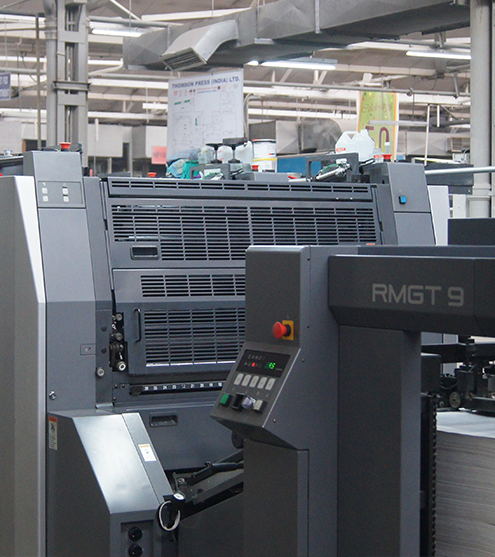
Five Things to Consider when Selecting a Commercial Printing Press for Book Printing!
Five Things to Consider when Selecting a Commercial Printing Press for Book Printing!

Gone are the days when printing books used to be a set of low-tech processes. With progressive advancement in technology, book printing has become more nuanced and technologically complex, with several critical processes that effect final quality of a printed book. By utilizing cutting-edge technology and processes, book printing professionals can present a better product for their prized publishers and their readers.
“Books are a uniquely portable magic.” – Stephen King
The above quote reveals the magic that lies behind the books. Have you ever wondered who creates the magic? Of course, the content, and the way it is presented cannot be denied either. A book cannot make a mark on the readers if it is not printed and presented well. A variety of factors determine the selection of a commercial printer who takes care of the entire book printing process. Having the right printing partner for your book is crucial because it can make all the difference in reader experience. It is therefore pertinent to look for the factors that affect your choice when you make the critical decision of partnering with a commercial printer.
1. Printing Capabilities
Printing serves an instrumental role in company branding. Anything that represents your business should appear professional to demonstrate expertise. For this reason, a commercial printer you choose must be able to print book copies in a way that will give a positive impression to your readers. This depends on the printing capabilities and the latest technological advancements they have. The impressions per hour or the number of pages to be printed per hour is a key determining factor. Find out these numbers and check carefully if the commercial book printer can meet your requirements of thousands (or hundreds of thousands!) books without missing out on delivery deadlines.
2. Flexibility
In the printing world, there are times when you need more pages to be printed, or less, you choose to go with 2 or 4 color inserts or choose a spot UV on the paperback cover and so on. Here is when you need a commercial printer that can keep pace with your ever-changing printing demands. Besides this, the commercial printer you choose should be flexible in accommodating different sizes as well as quality of paper. It will help you get the desired outcome using a variety of consumables as per the cost, delivery and quality requirements. A combination of speed and quality should be on your mind while ensuring flexibility.
3. Print Quality
In today’s competitive landscape, your target audience is already quite aware of the high-quality printed material. So, you need to add that special touch to make your books stand out. As a commercial printer, your partner must ensure that your printed copies are of consistently high quality, registration and color. It is determined by the quality of the equipment you are using to get the printing job done. Choose a printing company that has a proven track record of using quality materials over the years. Do they have a dedicated lab to test paper and inks? Do they regularly calibrate their equipment? Is their team seasoned and skilled enough to forecast infrequent printing challenges? Find out the answer to these questions. You might want to make a prototyping lot to begin with. That will ensure you start on the right foot.
4. Budget
Price is a major concern of most publishers, especially when there is stiff competition from E-books and Audiobooks. While costs are important, choosing a company offering the lowest price will not be a great idea either. Value comes with a price and hence you need to search for a commercial printer that provides a high-quality output at an approachable price to get value for money. It is recommended to do some research and compare the suppliers to get the best quotations for book printing. You may wish to experiment with paper, inks, quantity, delivery, among other factors and work with your commercial printer to arrive at the right price.
5. Customer Support
The commercial printer you select should be highly proactive when it comes to assisting your publishing house. They should promptly respond to your queries during the entire printing process. It would immensely help if their IT systems are robust and they allow for stage-wise review of each step in the print process. Find out the other factors related to age, maintenance, and reliability of their printing equipment. These include spare parts availability, power backup, and others. You could seek out references they have from reputed Publishers.
Before selecting a commercial printer, you should also check the support for quick repairing capability, efficient wastage management of paper. All these things ensure a smooth printing process, which is required to get the job done with perfection.
Are you ready to end your dilemma and invest in high-quality printed books that work for your readers? These pointers are surely going to help you achieve outstanding printing with your print partner.
